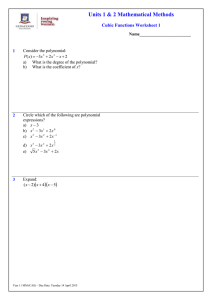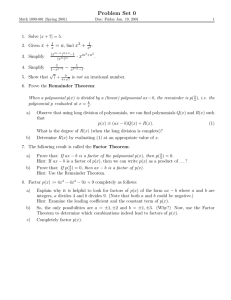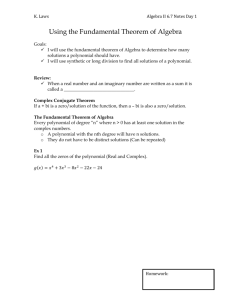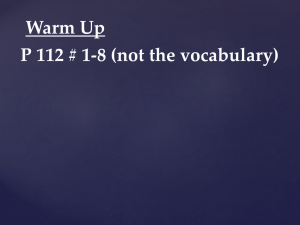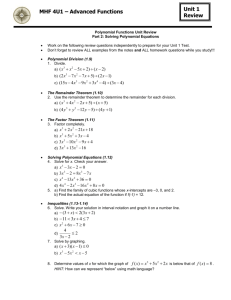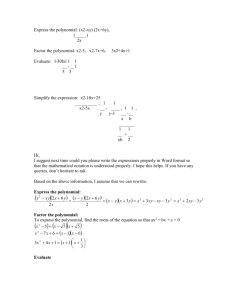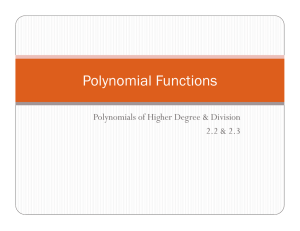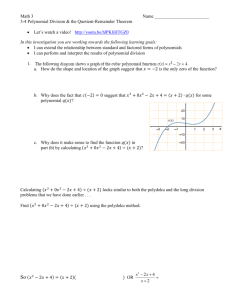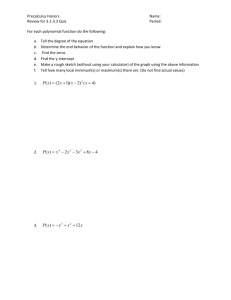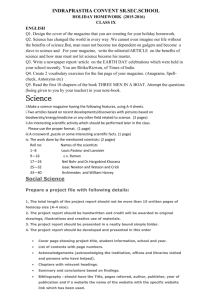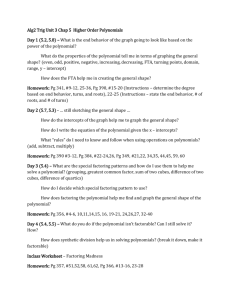Factorising Cubics, the remainder theorem, the factor
advertisement
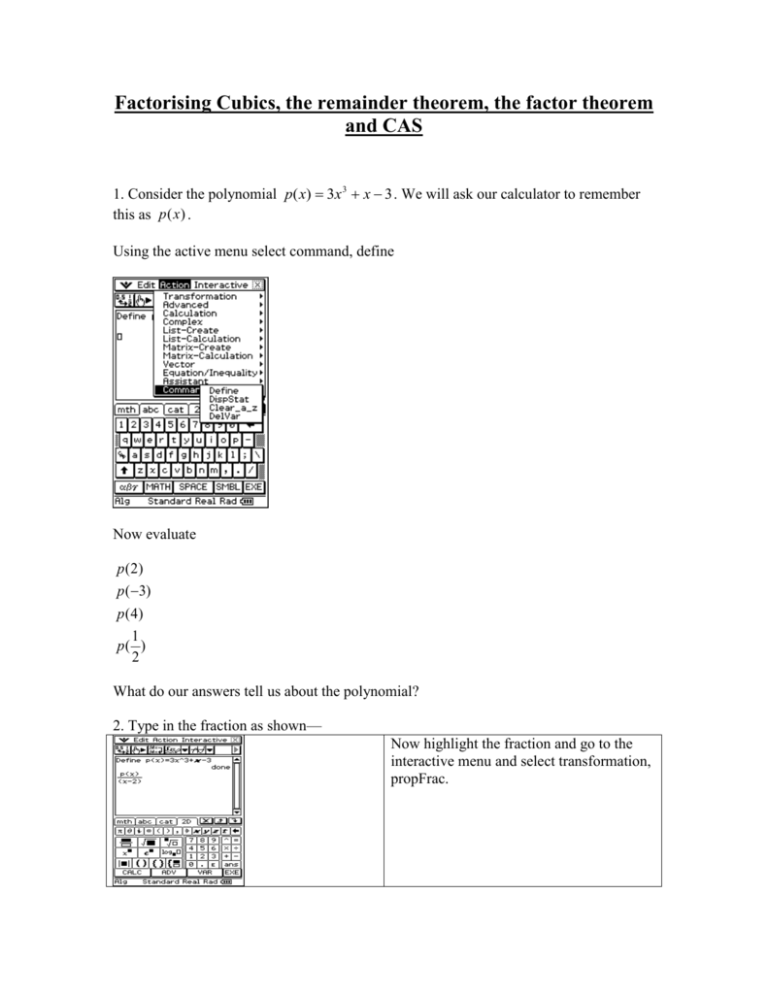
Factorising Cubics, the remainder theorem, the factor theorem and CAS 1. Consider the polynomial p( x) 3x 3 x 3 . We will ask our calculator to remember this as p (x ) . Using the active menu select command, define Now evaluate p ( 2) p ( 3) p ( 4) 1 p( ) 2 What do our answers tell us about the polynomial? 2. Type in the fraction as shown— Now highlight the fraction and go to the interactive menu and select transformation, propFrac. What does our answer tell us? Repeat for p( x) . ( x 3) 3. Now consider the polynomial p( x) x 3 2 x 2 5x 6 This time we want to factorise the polynomial. This can be achieved two ways— Method 1 using interactive, transformation and factor— Method 2—define p( x) x 3 2 x 2 5x 6 then solve for p ( x) 0 using interactive, advanced, solve This gives solutions of x 2, x 1, x 3 meaning the polynomial has factors of ( x 2) ( x 1) ( x 3) Try both methods for x 3 4 x 2 x 6 . 4. Consider the question— When P( x) x 3 2 x a is divided by x 2 the remainder is 4. Find the value of a. This can be done using CAS. The remainder theorem tells us that we need to set up p (2) 4 and solve for a. We define the polynomial (active, command, define) then enter p (2) 4 , highlight, interactive, advanced solve BUT we need to solve for a.
